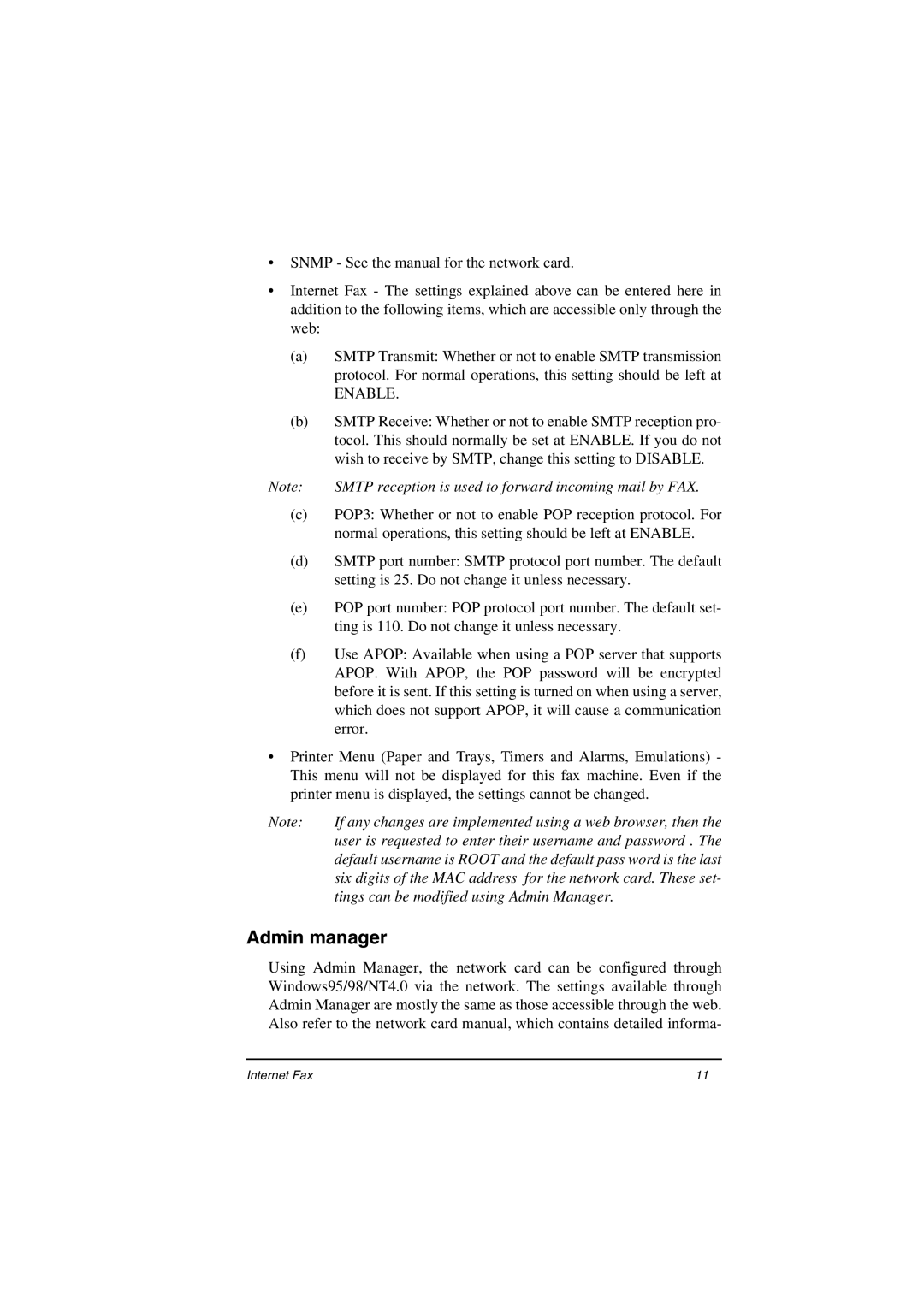•SNMP - See the manual for the network card.
•Internet Fax - The settings explained above can be entered here in addition to the following items, which are accessible only through the web:
(a)SMTP Transmit: Whether or not to enable SMTP transmission protocol. For normal operations, this setting should be left at
ENABLE.
(b)SMTP Receive: Whether or not to enable SMTP reception pro- tocol. This should normally be set at ENABLE. If you do not wish to receive by SMTP, change this setting to DISABLE.
Note: | SMTP reception is used to forward incoming mail by FAX. |
(c)POP3: Whether or not to enable POP reception protocol. For normal operations, this setting should be left at ENABLE.
(d)SMTP port number: SMTP protocol port number. The default setting is 25. Do not change it unless necessary.
(e)POP port number: POP protocol port number. The default set- ting is 110. Do not change it unless necessary.
(f)Use APOP: Available when using a POP server that supports APOP. With APOP, the POP password will be encrypted before it is sent. If this setting is turned on when using a server, which does not support APOP, it will cause a communication error.
•Printer Menu (Paper and Trays, Timers and Alarms, Emulations) - This menu will not be displayed for this fax machine. Even if the printer menu is displayed, the settings cannot be changed.
Note: | If any changes are implemented using a web browser, then the |
| user is requested to enter their username and password . The |
| default username is ROOT and the default pass word is the last |
| six digits of the MAC address for the network card. These set- |
| tings can be modified using Admin Manager. |
Admin manager
Using Admin Manager, the network card can be configured through Windows95/98/NT4.0 via the network. The settings available through Admin Manager are mostly the same as those accessible through the web. Also refer to the network card manual, which contains detailed informa-
Internet Fax | 11 |
